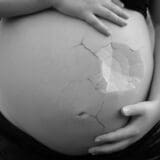High blood pressure is a serious problem for both men and women, and it should not be ignored. It’s especially critical for women to take measures to prevent or control their high blood pressure, also known as hypertension, as the consequences can be deadly. Statistics show that out of four women, three are aware that they have high blood pressure, but only one of those three takes steps to manage it.
Although many women who have chronic hypertension are able to have healthy babies, uncontrolled high blood pressure during pregnancy poses a serious risk to both the mother and fetus. These problems may be prevented or lessened by discussing them with the doctor before becoming pregnant. If the mother’s high blood pressure is chronic, steps can be taken to help lessen the complications that may develop during the pregnancy. The important first step for any pregnant woman – or woman hoping to become pregnant – is to get her blood pressure under control.
Preeclampsia is a condition brought about by the mother’s increasing blood pressure and the presence of protein in her urine. The protein in the urine is the result of kidney problems brought about by the high blood pressure. Toxemia during pregnancy generally develops after the 20th week of pregnancy, and not only affects the mother’s brain, liver and kidney, but also her placenta. Thus, the complications from toxemia of pregnancy include premature birth and low birth weight, as well as stillbirth.
Seizures in the mother are called preeclampsia and unfortunately, it is the second-leading cause of death during pregnancy in the United States. There isn’t a way to prevent preeclampsia, but delivery is the only cure. This is why it’s so important for any woman who has a problem with their blood pressure to talk to their doctor immediately when they become pregnant, or even better, before they become pregnant.
The following women may be at risk of developing preeclampsia:
– Women who have previously been diagnosed with hypertension
– Women who have developed preeclampsia during the early stages of a previous pregnancy
– Obese women
– Women under the age of 20 or over the age of 40 when pregnant
– Women who are expecting more than one baby
– Women with kidney disease, scleroderma, lupus, diabetes, or rheumatoid arthritis
Preeclampsia can be difficult to detect because there are no specific tests that will identify the problem. Instead, doctors have to look for signs and symptoms that might indicate the possibility of toxemia. Unfortunately, these same signs could be associated with other diseases or with healthy pregnancies. So it’s important to work closely with your physician. The physician will look for common symptoms of high blood pressure, which may include protein in the urine, persistent headaches, sensitivity to light, blurred vision, and abdominal pain.
Women who have high blood pressure and want to become pregnant can improve their chances of a healthy pregnancy by making lifestyle changes such as:
1. The doctor may strongly suggest that she lose weight and change her eating habits.
2. Talk to your doctor about your hypertension and find out how it may affect you and your baby. Ask what you can do to protect yourself and your baby, and then make sure to do it!
3. Some medicines that are used to lower blood pressure can be dangerous for pregnant women to take, so it’s important that the physician makes the final decision on what drugs can be taken.
4. The attending physician should always be the one to make any changes in prescription medications which lower blood pressure, and that includes stopping or reducing the dosage. Patients should never make these changes on their own.
5. Even over-the-counter medicines can be dangerous during a high risk pregnancy. Always consult with your physician about any and all over-the-counter medicines before taking them, to ensure the safety of you and your baby.
Pregnant women who have high blood pressure should receive regular prenatal care, as this is essential for the health of both the mother and fetus. It goes without saying that pregnant women should not drink or smoke while pregnant. If you are pregnant and have problems stopping your smoking or drinking, your physician may be able to suggest special programs to help you.
If a health condition can be taken care of before or during pregnancy, it should be, as it may cause serious problems later on.











